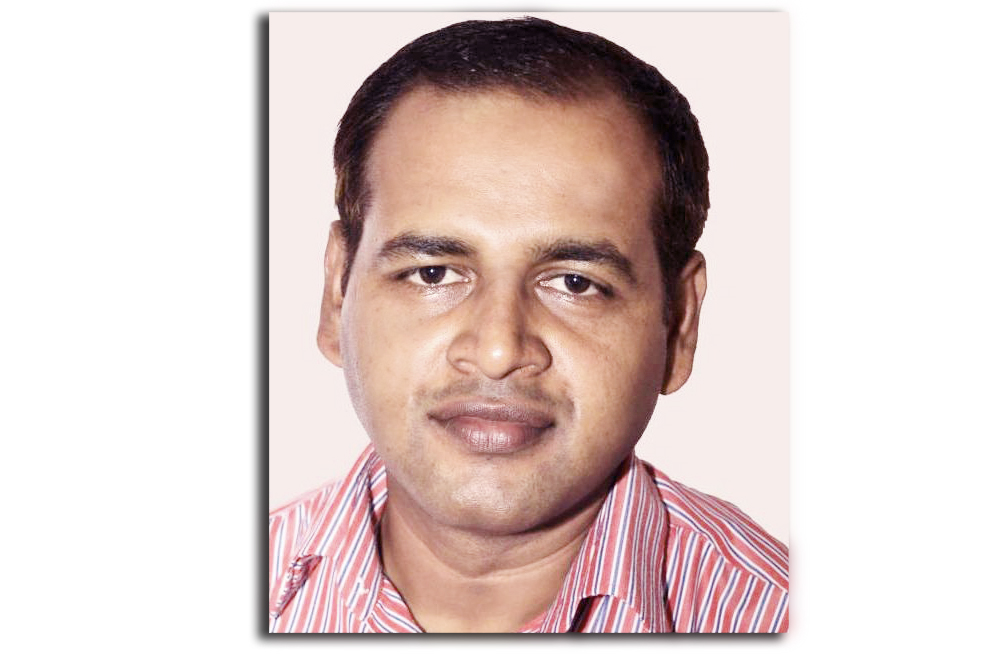By Gopal Khanal (KATHMANDU, 30 July 2020) – Nepali politics on 28 July witnessed two major political developments related to the lifetime of two major parties – the ruling Nepal Communist Party (NCP) and the opposition Nepali Congress (NC). The first one is about the unprecedented crisis facing the ruling party and the second is the consolidation of the waning opposition.
Bamdev Gautam’s abrupt yet dramatic intervention caused a ripple within the party that is on the verge of split while Sunil Thapa’s entry into NC leaving the conservative royalist-RPP, which party his father had founded, has created an hullaballoo in the political circle. Bamdev’s 6-point proposal to narrow down the intra-party differences is the most logical, reasonable and substantive presented so far in the party. While making public midway solution he said his suggestion would help avert the potential division of the party if the two chairmen moved forward with the plan.
According to the proposal, Prime Minister Oli will complete full term of five years in office and will also remain as the chairman of the party until the unity convention of the party is held. Prachanda can work as the chairman of the party with all executive rights and responsibilities until the unity convention.
His points are practical and seek solution on the basis of equality and justice. The party should not interfere in the daily works of the government while the government should also consult it in taking important decisions on domestic and external affairs. He has also suggested for reshuffling the cabinet and making appointments in constitutional and political bodies in consultation with the party secretariat.
Seen as the most unstable leader, Bamdev’s recent ‘U-turn’ with tangible plan could be the practical solution to party’s internal feud. Before Gautam’s statement was made public, the chairmen held dialogue in Baluwatar that further amplified the misunderstanding. Oli postponed the scheduled meeting of party standing committee on Tuesday after consultations with Prachanda and General Secretary Bishnu Poudel. But Prachanda reduced the meeting into a gathering as a continuation of his Khumaltar fractional meet.
Gautam’s public image has been badly eroding because of his inconsistent politics and ill-timed thought. Unlike the previous two concepts, which lacked pragmatism and sanity, this proposal is significant. Backtracking from his sole aim of becoming Prime Minister and being elected from the House of Representatives, he now is trying to prove himself as the strategist of the party.
In the crucial meeting of the party secretariat earlier he had abruptly distanced himself from Prachanda and had taken the side of Prime Minister Oli. Bamdev’s changed position made Oli stronger, preventing the disaster. He then forged alliances with the Prachanda and Madhav Nepal restoring the demand of the resignation of Prime Minister from both the positions.
It seems he is now worried about the possible division of the party, which had received the two-thirds strength of the people with the slogan of ‘Prosperous Nepal, Happy Nepali’. Gautam’s idea of making NCP united has been applauded by all those who want to see the stronger communist party and the communist government in Nepal.
The second major political development that took place on 28 July was the entry of Sunil Thapa along with his team into Nepali Congress. He had announced his exit from RPP a few days ago after formally registering discontent in the party’s policy and strategy. He was not happy in the RPP since the three parties led by Kamal Thapa, Pashupati Shumsher Rana and Prakash Chandra Lohani merged into one in March with an objective of struggling for the reinstatement of monarchy.
Surya Bahadur Thapa was the prime minister during Panchayat system and multiparty democracy and known as all-weather friend of India’s establishment. He had good chemistry with late Girija Prasad Koirala, president of Nepal Congress and former Prime Minister of Nepal. NC President Sher Bahadur Deuba welcomed the son of Surya Bahadur Thapa handing over the party membership.
Surya Bahadur Thapa was the founder president of Nepali Congress Dhankuta district and Sunil has now started the same journey, which he claims his return to the mother party. Surya Bahadur’s major mission was to forge the larger democratic alliance with Nepali Congress and he had built up the alliance with GP Koirala but that didn’t work.
Political parties are the part and parcel of functional democracy. Therefore, the parties should be promoted to fairly serve the people based on their ideology and programmes. Unity always brings positive result, division weaken the party politics and democracy. NCP and NC, the major parties can compete each other if these parties accumulate strength by demonstrating consolidated effort. If these parties fail to demonstrate internal unity, they cannot compete with the other party and external powers too. The alternative of NCP can be NC if the latter gains popular support of people by playing the fair role of opposition.
Bamdev’s middle path role can be instrumental to avert the crisis of the ruling party while Sunil’s entry into NC can be a new hope for the opposition party. We believe both will succeed in their missions.
Nepali Politics: Power Dominates Principles


